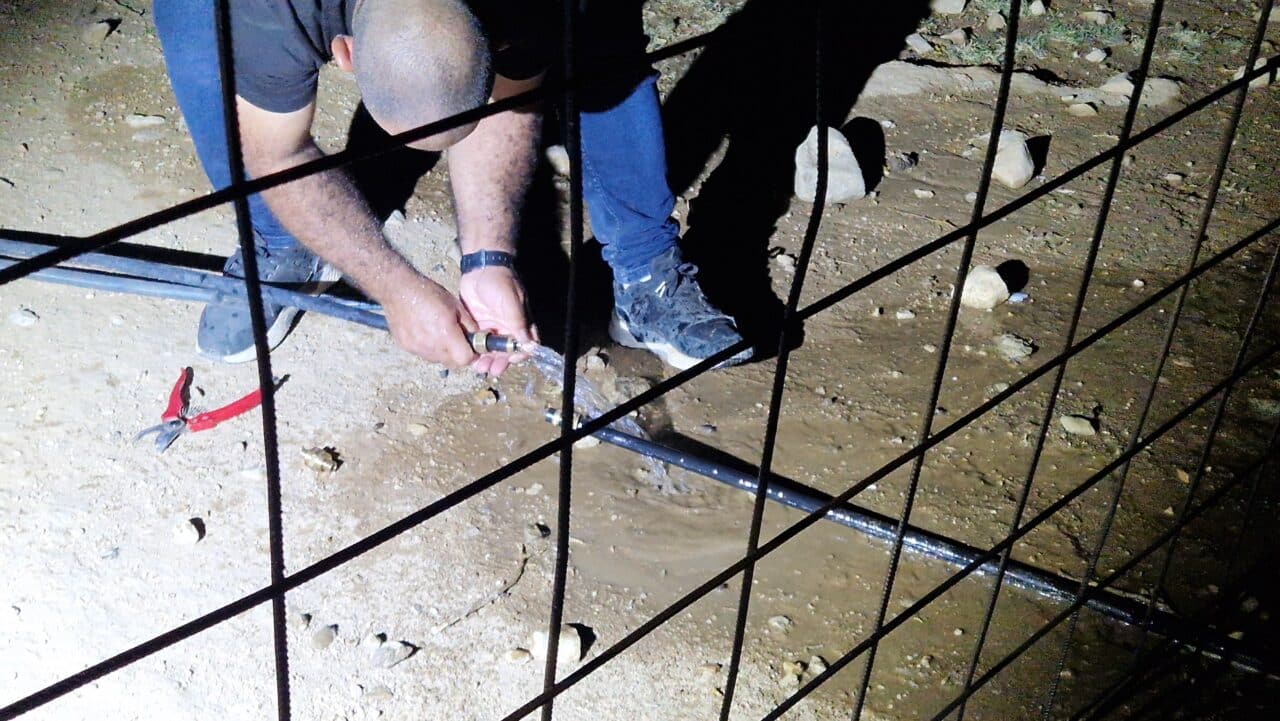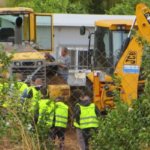Palestine Monitor: How To Make A Population Disappear
Palestine Monitor report: 17th May 2010
Maleb Anawi has just received a demolition order for his home. “I asked the police where should I go?”, he says, “I was told that is my problem”. Anawi has no easy answers, already he has moved several times, but on six occasions his property has been destroyed by Israeli soldiers. In Al-Hadidye, a Bedouin village in the north of the Jordan Valley, his prospects appear bleak.
Palestinian Bedouins have inhabited the Jordan Valley in large numbers for the past century under British, Jordanian and now Israeli rule. They are a traditional agricultural community- the majority being shepherds and farmers earning their living from the land. Since the Oslo Accords carved up the West Bank in 1993, the Jordan Valley was designated Area C, subjecting the Palestinian population to Israeli military law. Although the accords stipulated that power be transferred to the Palestinian Authority, there has been no hint of transition. This March, Israeli Prime Minister Netanyahu announced that Israeli control of the Jordan Valley would be an “essential condition” of any peace deal.
The laws governing C areas deny Palestinians several basic rights and freedoms. It is illegal for them to build, even within their own villages. This allows for homes, schools and wells to be destroyed at the discretion of the Israeli army. Movement restrictions cut them off from the West Bank, so that farmers cannot trade their goods. The Jordan Valley’s abundant resources, which have earned its description as the bread basket of Palestine have been monopolised and seized by Israeli companies and settlements.
The Israeli water company Merkorot now controls 98% of the region’s water supply, charging higher prices to Palestinians than settlers. Their monopoly is supported by military orders that have destroyed 162 Palestinian wells since 1967. “For generations, we used to dig holes in the land, where we collected sufficient water for six months to feed people, animals and crops”, says Abu Sakri, a lifetime resident of Al-Hadidye. “Now our wells have been closed and we are forced to bring water from a village 35 kilometres away. We pay about 37 NIS (£6.50) for each cubic litre of water and 110 NIS (£19.50) for a tanker of fuel each journey. You don’t need guns to kill people. Not letting us use our wells is another way that is just as effective.”
The figures are stark. Since 1967, a population of over 300,000 Palestinians in the Jordan Valley has shrunk to 52,000. Most have fled to refugee camps in the West Bank and Jordan. The UN estimate 367 families lost their homes in the first half of 2009. Vast swathes of land are continually seized under military law for firing zones, settlement farms and nature reserves. There are now 200 settlements in the valley, a figure that rises each year.
Dafne Banai, a human rights worker from Tel Aviv, has been monitoring the Jordan Valley for ten years. Her group, Checkpoint Watch, provides representation for beleaguered farmers. “There is a brotherhood between the army and settlers and both aim to make life unliveable for farmers. I cannot imagine what it is to live without rights or security, to be governed by people whose interests are not their own.” She cites countless cases of harassment, including a recent incident of a shepherd being fined 660 NIS (£110) for allowing his goat to wander into an unmarked area. “I asked them not to pay these fines because this is an outrage. I immediately got in touch with Environmental Protection Minister Gilad Erdan, asking him to act so that these bizarre fines are cancelled.” The case was instantly thrown out, but in most instances there is no such representation.
Fathi Khdirat chairs the Jordan Valley Solidarity Group, which defies regulations through illegal construction. He feels that Area C Palestinians have been abandoned by politicians and aid groups who talk a good game, but take little action. His organisation receives no support from the Palestinian Authority and he is scathing on Oxfam’s contribution, “in two years they couldn’t build a water tank”. The JVS is entirely dependent on volunteer work. Khdirat believes these projects will only succeed if they can raise the profile of his people’s struggle, in order to secure funding and public sympathy.
One notable success has come through an alliance with Sussex University students, which began in 2004 when Khdirat spoke at a London conference. “After the conference 17 students from Sussex visited Fassayil village. They helped in the construction of a school and now every year we have four or five delegations from Brighton. Sometimes we have 100 volunteers on the site.” Previously children were forced to make long, dangerous journeys to get to school, which resulted in the majority foregoing their education.
After 18 months of work the Fassayil school was predictably served with a demolition order, but to date it has not been carried out. Khdirat believes the extra scrutiny which came through international involvement made the difference. “Without our friends in the UK it would have been very difficult, but now we feel we have big support. They have access to international communities and we learn from them. They open doors for us. I myself have visited the British Parliament and met with Clare Short. We need international support. When we started our campaign this was a forgotten area.”
Despite these advances, state victimisation continues apace. Fines, demolitions, police intimidation and settler infringements remain the daily travails of Jordan Valley Palestinians. Since their persecutor is the state itself, the law rarely works in their favour. Neven Khdirat, a lawyer from Al-Haq, believes the application of international law is the only solution. “We have hundreds of ongoing cases but only 4-5% reach court and then they often collapse for ridiculous reasons. Last week a man in Al-Malik village was fined 2000 NIS (£335) for a driving offence. When we took it to an Israeli court the man was not given a permit to attend his hearing. When settlers killed a farmer’s animals, the farmer was arrested for incitement. The UN and OCHA have the resources to make a difference here but they choose not to. If the situation does not change, the communities living here will not have a long future.”
In 2009, Palestinian Prime Minister Salam Fayyad toured the Jordan Valley, declaring it “a key part of our future state” and pledging support for beleaguered farmers. That future cannot come soon enough. Without substantial commitment from the international community to curb Israeli impunity, the bread basket of Palestine will have become an all you can eat buffet for Israeli appropriators.


